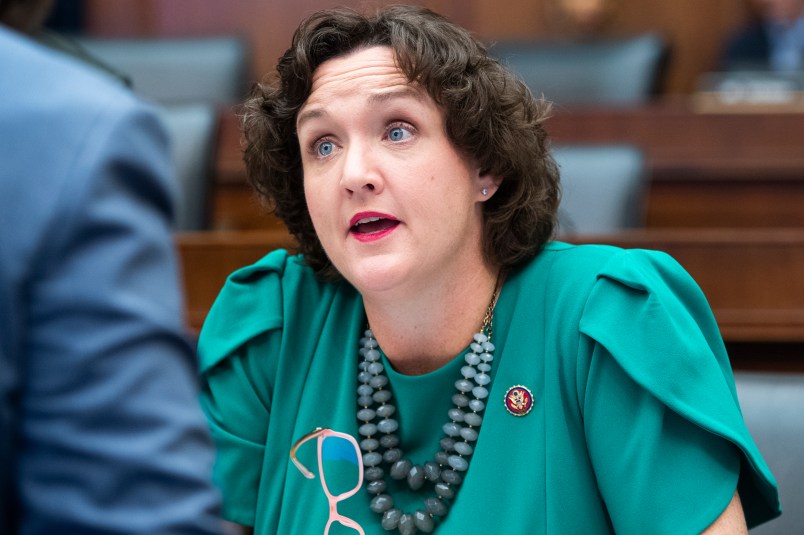Rep. Katie Porter (D-CA), armed with a whiteboard, held Centers for Disease Control and Prevention Director Robert Redfield’s feet to the fire on whether or not he would exercise his authority to make coronavirus testing free for all Americans, regardless of insurance coverage.
After first pop-quizzing Assistant Secretary for Preparedness and Response Robert Kadlec on the various costs for the out-of-pocket costs associated with the illness, Porter turned her attention to Redfield.
She asked repeatedly if he would exercise the provision in the Code of Federal Regulations that gives him “sole discretion” over payment for care and treatment of individuals subject to “medical examination, quarantine, isolation and conditional release” to make the coronavirus testing free.
Redfield offered up that CDC is working with the Department of Health and Human Services to “operationalize” that power — but Porter wasn’t having it.
“Dr. Redfield,” she said solemnly. “I hope that answer weighs heavily on you. Because it is going to weigh very heavily on me and on every American family.”
She kept pushing, saying that Redfield didn’t have to do “any work,” that he could figure out how to operationalize the payment structure tomorrow. She said that she was looking for a commitment from him that all Americans would be able to be tested free of charge.
“I think you’re an excellent questioner, so my answer is yes,” he finally conceded.
“Excellent!” Porter exclaimed. “Everybody in America hear that?”
The CDC did not immediately respond to questions about when and how free testing will go into effect.
Some states, including New York and California, have already ordered insurance companies not to charge people for the tests. Certain health providers, including Aetna and Blue Cross Blue Shield, have also pledged to waive out-of-pocket costs.
But the uninsured have enjoyed far fewer breaks. The House plans to vote on the “Families First” bill Thursday, which includes many coronavirus measures, including free testing for the uninsured. However, it is unlikely to ever become law now, after Senate Majority Leader Mitch McConnell (R-KY) called it an “ideological wish list not tailored closely to the circumstances.”
The Senate has cancelled its planned recess to continue working on coronavirus legislation. The House has not yet announced any change in plans — members are expected to leave for their home districts on Thursday.



